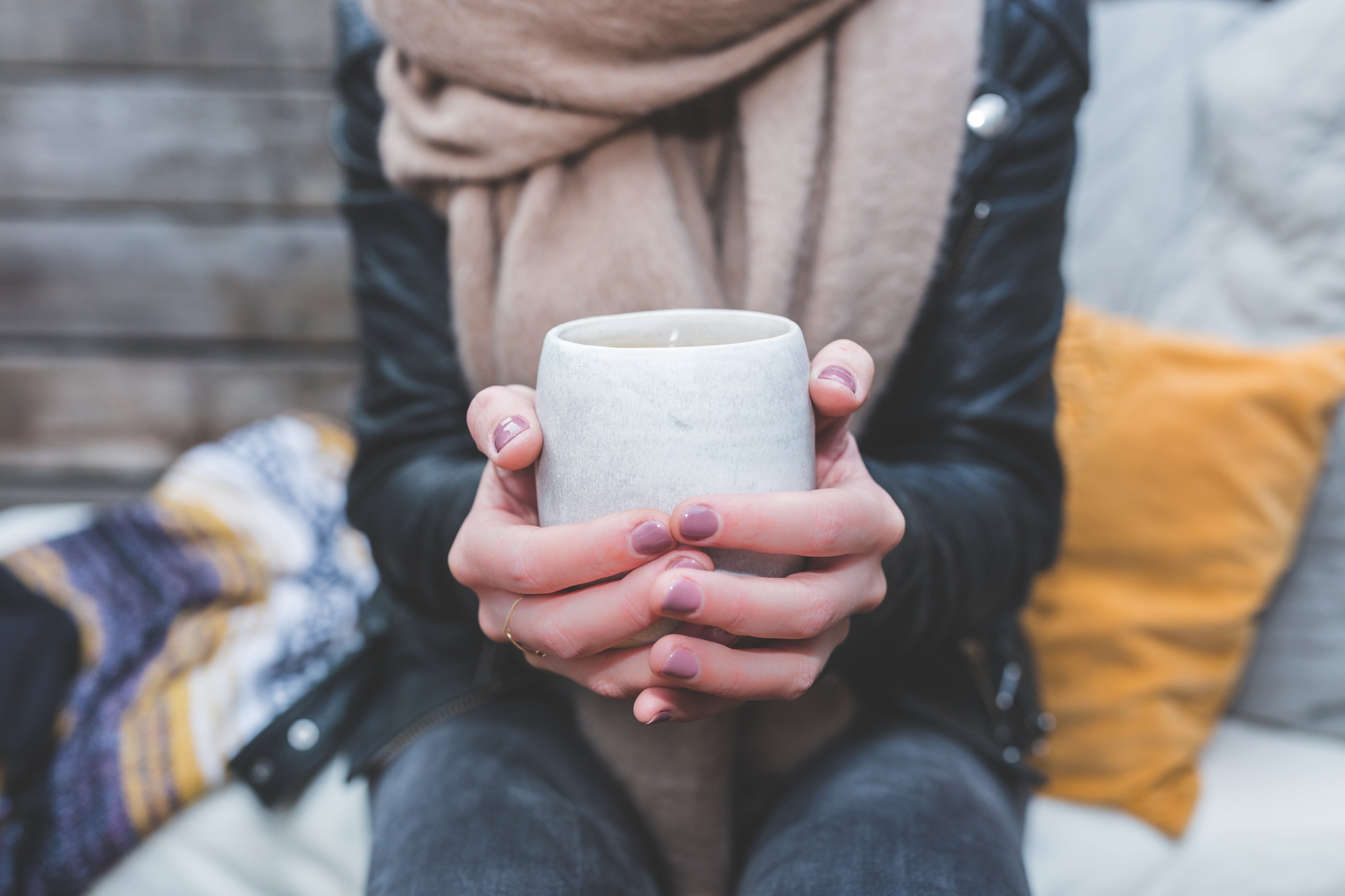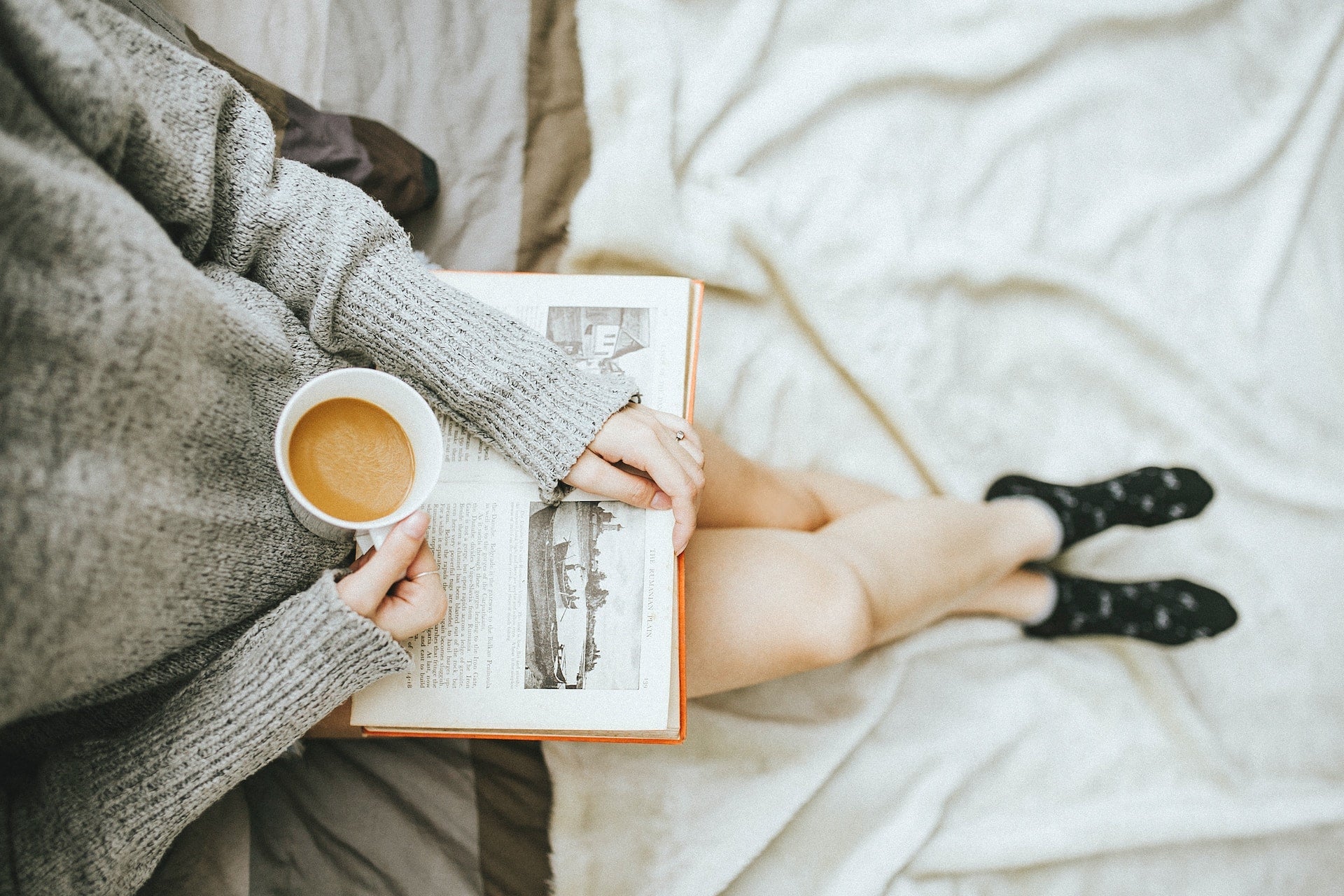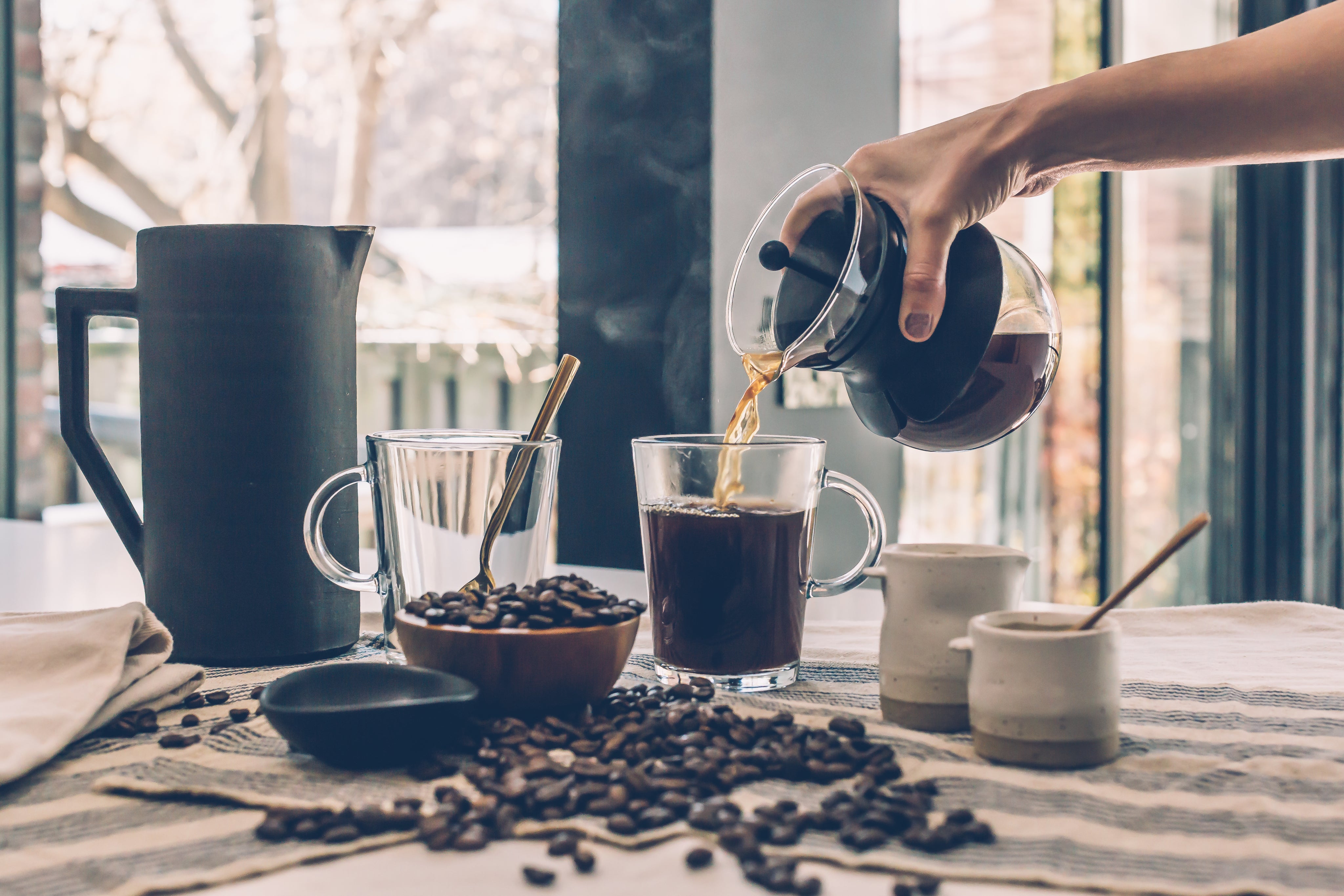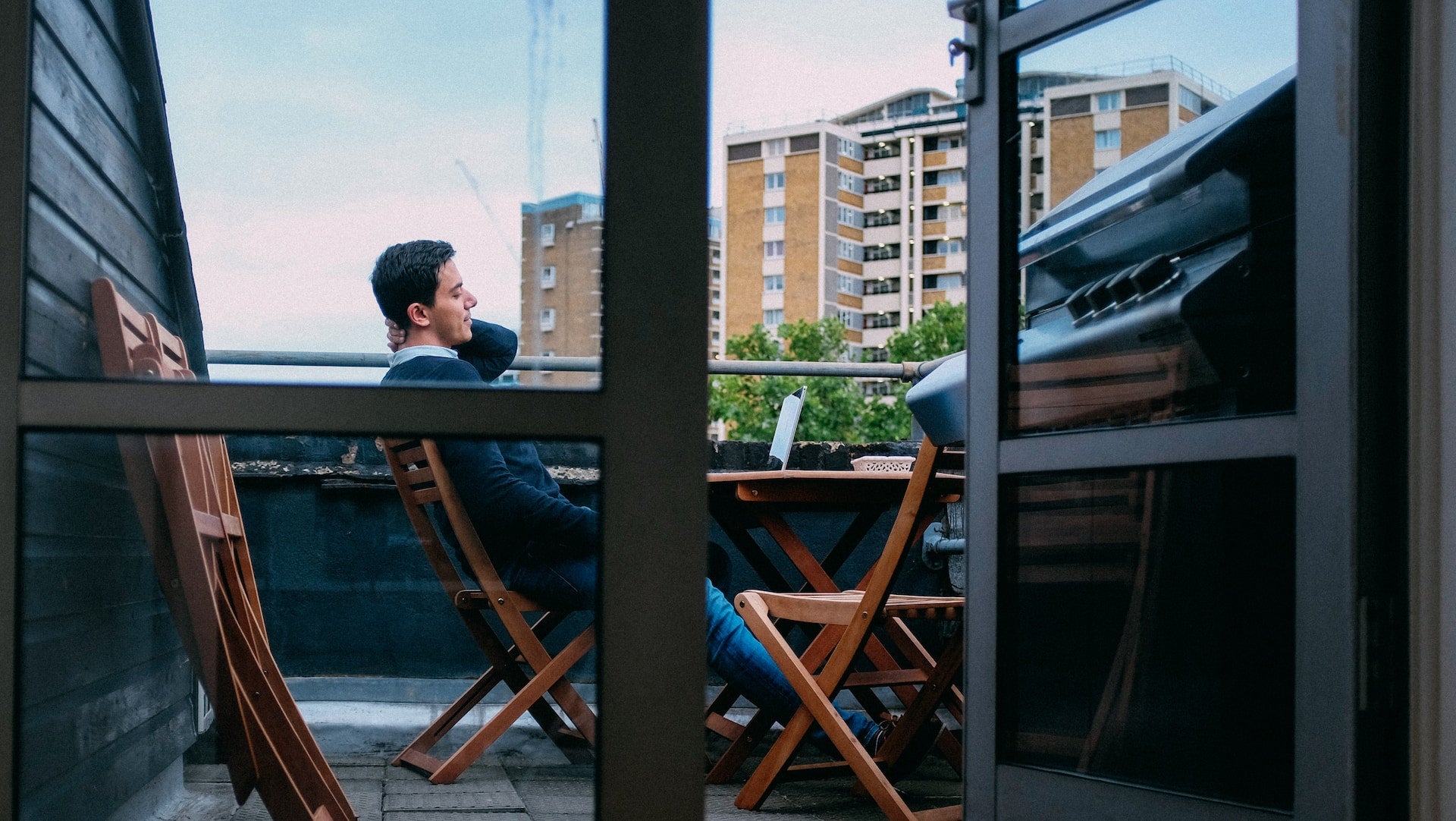Key takeaways
- Caffeine can help to make us feel more awake and alert, as it’s a stimulant that speeds up our nerve cell activity
- Because of this, consuming caffeine too late in the day can cause sleep problems
- It’s recommended that you consume caffeine no later than 8 hours before you want to go to sleep to avoid the negative impact on your sleep
Aah, caffeine. There’s nothing quite like the first freshly brewed cup of Joe in the morning to kickstart your day. Or the cola you have with a mid-morning snack. And don’t forget about the energy drink you have to get you out of that mid-afternoon slump when you can feel yourself falling asleep at your desk. Oh, and do you have a cup of tea before bed as you settle down to read your book?
Caffeine is great for keeping us alert, there’s no denying it. But there’s one little problem: caffeine’s effects on sleep. But how much of a problem is it, really? Let’s get to the bottom of it.

Does coffee keep you awake?
First things first: why do we consume caffeine to keep us awake? How does it work?
Well, caffeine is a completely natural substance that comes from plants and is used in a variety of food products including tea, coffee, cola, energy drinks and chocolate.
As you’re probably already aware if you’re a coffee drinker, caffeine can help to keep us alert. That’s because caffeine is a stimulant. In fact, to get technical about it, caffeine acts as an adenosine receptor antagonist.
In simpler terms, adenosine is a substance that’s created in the brain, and when it binds to adenosine receptors, it slows down your nerve cell activity – which can make you feel sleepy.
Caffeine basically tricks your adenosine receptors. To your nerve cells, caffeine and adenosine look the same. So caffeine blinds to the adenosine receptors, but instead of slowing down nerve cell activity, it speeds it up. That means that you start to feel more awake – which is why so many of us reach for a cup of coffee first thing in the morning!
How long does caffeine keep you awake?
Caffeine doesn’t work immediately to make you feel more awake and alert, but it does work really quickly. You’ll usually feel the effects of caffeine within 5 to 30 minutes.
Once you’ve had your dose of caffeine, the effects can last from anywhere from 8 to 12 hours, and the half life of caffeine is around five hours (although it can vary – depending on the person, it could be anything from 1.5 to 9.5 hours depending on various factors including pregnancy, smoking and certain health conditions.
The half life of a drug is the amount of time it takes for a substance to be reduced to half of the original amount consumed. So, sticking with the average half life of five hours, if you’ve taken 10 milligrams of coffee, then after five hours, you’ll still have 5 milligrams of caffeine in your body.
The average 1-ounce cup of espresso contains anywhere from 30 to 90 milligrams of caffeine. That means after five hours, you could still have 15 to 45 milligrams of caffeine in your system.
That’s great if you’re drinking tea or coffee in the morning or with lunch. But if you’re still consuming caffeine throughout the afternoon, you could be feeling the effects well into the evening.
And that brings us onto our next question…
What’s the link between caffeine and insomnia?
If you consume caffeine late in the day, it can mess with your sleep. Even if you’re not chugging coffee at 5pm, that cola you have with dinner could stop you from drifting off to sleep.
Remember those adenosine receptors? They don’t know whether it’s 6am or 6pm when you’re consuming caffeine. So when you consume caffeine late in the day, it gets to work to make you more alert – which is exactly what you don’t want when you’re trying to wind down.
That’s the most obvious of caffeine’s effects on sleep: when you have caffeine, your adenosine receptors can’t do their thing to make you feel sleepy. Instead, you end up feeling more awake, and you might struggle to switch off.
Of course, it all depends on your body and your tolerance for caffeine. Some people find that they can drink coffee all day and all night and it’ll have no impact on their ability to fall asleep.
It could, however, have an impact on your quality of sleep, meaning you enjoy less deep sleep. One study into caffeine insomnia found that caffeine taken 6 hours before bedtime can significantly disrupt sleep. It can also affect your internal body clock.
That could mean that you wake up feeling less refreshed – meaning you drink more coffee the next day, and the cycle starts all over again.
Your sleep might also be disrupted by some of caffeine’s side effects, which can include:
- An upset stomach
- Heartburn
- Frequent urination
- Feeling jittery or on edge
Caffeine is the most widely consumed psychoactive drug in the world, and it’s safe for most people to consume fairly high amounts of it. The Food and Drug Administration (FDA) suggests that 400 milligrams of caffeine a day (around four or five cups of coffee) is safe to consume without any negative side effects.
However, depending on the person, the side effects of that amount of coffee could include disrupted sleep.
So if you currently drink coffee before bed and find that sleeping after caffeine can be a struggle, it might be time to consider reducing your caffeine intake – or at least, thinking about when you’re consuming it.
How to counteract caffeine insomnia
It’s generally recommended that you stop consuming caffeine eight hours before bedtime. So, if you go to bed at 10pm, you should try to avoid caffeine after 2pm.
If you’re used to drinking caffeine before bed, that one simple switch might help you to get a better night’s sleep.
Some other ways to minimize the effect of your caffeine intake on your sleep include:
Keep track of your caffeine intake
It can be easier to consume more caffeine than you think. You might only have two cups of coffee a day, but what about sodas, energy drinks, tea and chocolate? Knowing how much caffeine can be found in different food and drinks can help you to make sure that you’re not going over your limits.
Some of the most common products containing caffeine are:
- 8-ounce cup of brewed coffee: 102-200 milligrams (mg) of caffeine
- 8-ounce cup of instant coffee: 27-173 mg of caffeine
- 1-ounce cup of espresso: 30-90 mg of caffeine
- 8-ounce cup of black tea: 40-120 mg of caffeine
- 8-ounce cup of green tea: 40-120 mg of caffeine
- 12-ounce glass of cola: 35-71 mg of caffeine
- Energy drinks: 50-300 mg of caffeine
- Chocolate bar: 9-31 mg of caffeine
Get some morning light exposure
There’s evidence that morning light exposure can have a positive impact on your circadian rhythm, the 24-hour cycles that are part of the body's internal clock. Seeing bright, natural light early in the morning can help you to wake up and feel more alert (similar to the impact of your morning cup of coffee), and it can also help you to fall asleep more easily at night.
Practice good sleep hygiene
Even if you cut down on caffeine, it doesn’t mean that you’ll instantly drop into a deep sleep. There is a lot at play when it comes to different factors that can affect the quality of your sleep, such as the distraction of having your phone in the bedroom. Not only does that make it more tempting to fall into a late-night scroll hole, but the blue light emitted from your phone can suppress melatonin, which makes us sleepy.
That means your bedtime phone addiction could be to blame for your poor sleep, rather than your afternoon coffee habit. Try practicing better sleep hygiene habits as well as cutting down on your caffeine, and hopefully you’ll wake up feeling more refreshed each morning.
Wear earplugs to bed
Similarly, your lack of sleep could be partly because you’re trying to sleep in a noisy environment. If you have a partner who snores, or live on a street with busy traffic, these noises are going to work with your caffeine consumption to make sleep even harder to come by. And the more frustrated you get by not being able to sleep, the harder it often becomes to drift off.
Earplugs can improve your sleep by blocking out external noises to help you drift off faster and stay asleep, so you’re not woken up by every little noise during the night. Loop Dream™ earplugs are specially designed for sleep comfort. The earplug body is made with our softest silicone, as well as an innovative design that reduces pressure on the ears for added comfort – even when sleeping on your side. Plus, the Loop Dream Ear Tips are made with our new hybrid memory-foam silicone that follows the natural shape of your ears for even more comfort.
They muffle noises like snoring, traffic and noisy neighbors with our most powerful noise reduction of 27 dB (SNR), helping you to enjoy your dreamiest night’s sleep ever.
And if you get a better night’s sleep, you might be able to reduce your reliance on caffeine during the day, meaning you can avoid that vicious cycle of feeling sleepy and drinking more coffee to perk you up – only to then have trouble sleeping again.
Get more exercise
There are two main benefits when it comes to exercise and sleep. Firstly, it can boost your brain’s dopamine, norepinephrine and serotonin levels. That can help you to feel more alert and focused. So instead of reaching for a mid-afternoon coffee, getting out for some exercise during your lunch break could have the same effect.
Secondly, moderate aerobic exercise can increase the amount of deep sleep you get. That’s the sleep we need to rest and revitalize both our body and our mind. So, again, more exercise could have you reaching for caffeinated products less often.
Get your best night’s sleep
Does caffeine make you stay awake? It can do – both during the day, when you want it to, and at night, when you don’t. There’s no need to cut out caffeine completely if it gives you no other negative side effects and you enjoy it.
But if you do find that you have trouble sleeping after drinking coffee at night (or consuming other caffeinated products), consider setting yourself a cut-off time for your last caffeine hit of the day.
That, along with better sleep hygiene, should help you to get a better night’s sleep, and leave you feeling more refreshed the next day so you’re not tempted to reach for that extra cup of coffee.

How to go to sleep faster
We’ve put together a list of eight tips on how to sleep faster so that you can finally doze off and get some well-ear...

How sleeping with earplugs can improve your sleep
Sleeping with earplugs can have a number of benefits, such as an increase in natural melatonin, improved sleep qualit...

How To Get Better Sleep By Improving Your Sleep Hygiene
Good sleep can improve your physical and mental health. Take a look at our guide to sleep hygiene to discover simple ...


















